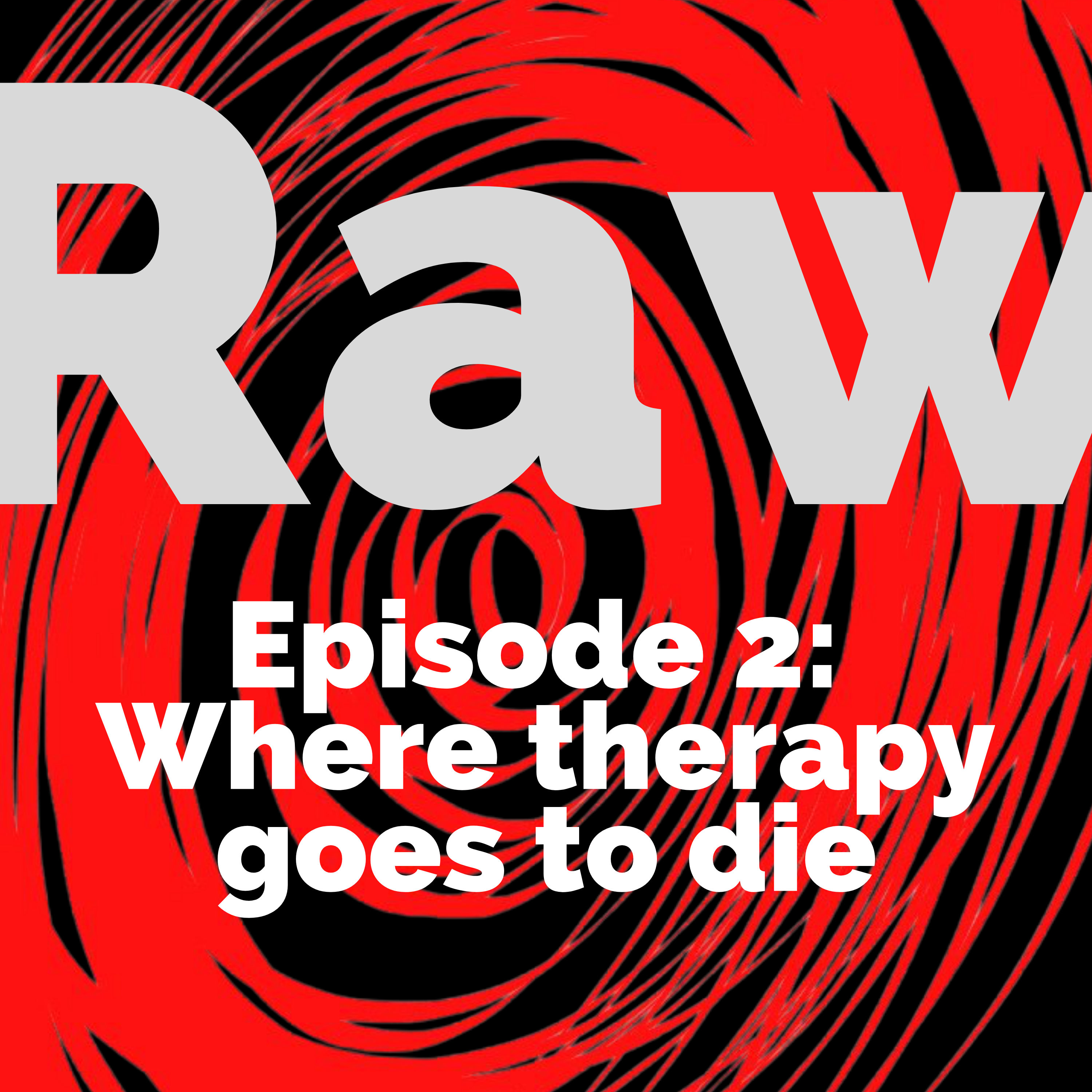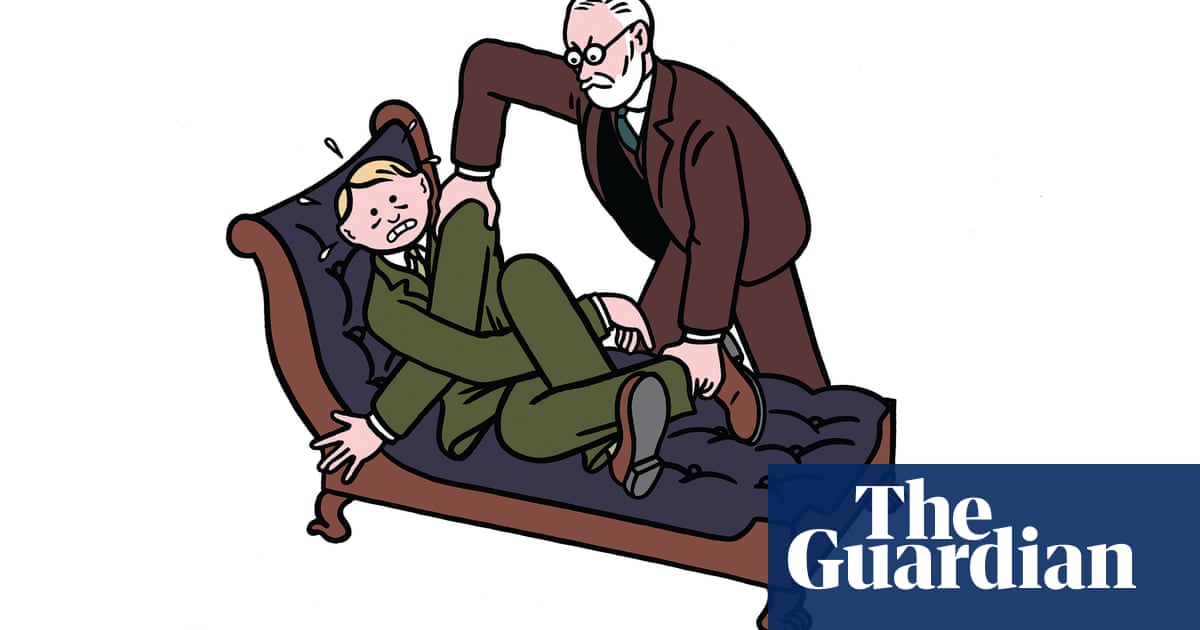
🎧 Raw ep 2: Where therapy goes to die
This is what happened when I ran into a psychiatrist in a small town.
Nothing in this story is intended to be medical advice. If you suffer from any of the conditions described here, please seek professional help.
Transcription begins:
"What?!" Let me tell you an interesting story about the reality of mental healthcare in India.
It is the story of my encounter with a psychiatrist in a small town.
Full disclosure: Involves plenty of surprise and shock.
Ok first, some context.
Did you know that the US has an office dedicated to tracking UFOs, or unidentified flying objects? It's the kind of thing rich countries can afford while simultaneously smirking at the absurdity of it.
Psychiatry clinics in small Indian towns are a bit like the UFO office. Indulgent, absurd, dealing in strange aliens.
Alright, here’s more context:
We big-city folk, especially those involved in mental health activism and aware of everything that is broken in the current mental healthcare system — we often complain about psychiatry's overdependence on pills.
We ain't seen nothin'.
Come to the small town that my story is set in, and you will realise 'mental health' is spelt D-R-U-G-S. Drugs. I mean pills. Medicines.
What did you say? What about therapy? Hehe, you joking?!
So, I meet this psychiatrist in a busy private hospital. I'm with a senior citizen who has anxiety. The psychiatrist is a bit miffed we didn't come on the day of his 'special OPD'.
“Today I have too much admin work,” he says politely. I'm later told the special OPD fee is much higher.
He looks at the case history for a long time, then asks the patient how they are feeling.
“Can't get the negative thoughts out of my head doctor,” they say.
“Last time your hands shook and your mouth was dry. How's that now?”
“My mouth still gets dry. But it's those thoughts...”
He stares at the last prescription again.
“I had stopped this pill and given a new one, did that help with the tremors?”
“Yes doctor, the tremors are gone.”
“Stretch your hands. Yes, good. And the bad thoughts? Are you able to control them?”
“No doctor, like I said...”
More staring at the prescription follows.
Then, the psychiatrist says:
“Alright, I am stopping one pill and adding another new one. That should help with the dry mouth.”
“But what about the bad thoughts doctor? It's like my mind rushes towards the worst possible ideas. I try to distract myself with work, but I just can't.”
Silence follows, again.
If you have ever been on pills for a mental health condition, you may know that psychiatry is often a game of playing symptoms and side effects off each other.
That’s what makes psychiatric medication so controversial — sometimes, especially in the early days of treatment, they could seem to create more problems than they resolve.
If you are stuck in this regime for long and the side effects persist for long, you might end up forgetting what you originally sought treatment for.
Over the 12 months the person I was accompanying was under psychiatric treatment, side effects came and went like a revolving door. Stiffness. Slurry speech. Nightmares. Dry mouth. Shaky limbs. Elevated cholesterol.
Sounds horrifying, but as someone who has been popping pills regularly for several years and still grapples with the occasional side effect, I wasn’t shocked.
Anyway, so most meetings this particular patient had with the doctor ended up becoming all about replacing some pills with some others, in the hope that the side effects will stop.
The original malaise — mental distress — was discussed only in the passing.
Today that same absurd script was playing out again.
So at this point, I decide to speak.
“Doctor, I work in mental health. May I ask a question? Since you've been seeing the patient for a few months now, do you think talk therapy might help?”
“What therapy?”
“Talk therapy. I mean psychotherapy?”
The doctor looks up from the prescription. I'm pretty sure this is the first time a “patient party” in this town has asked him this question.
“Ah psychotherapy. Hmm. Let me handle the pharmacotherapy part first.”
So, we are trading jargon now. The patient looks on.
“Because as you know doctor, therapy can help a lot with anxiety,” I chime in again. “I myself have benefited a lot from psychoanalytic and psychodynamic work.”
“What?! Psychoanalysis?”
“Yes doctor.”
He puts down his pen.
“Are you serious? Who does that anymore? I mean some of my teachers used to talk about psychoanalysis but they are all dead now.
Behavioural therapy I can still understand, but that other stuff is useless.”
“Well it works for me...” I sheepishly respond.
“Let me be very frank,” he shoots back, looking really offended now. “I don't believe in it.
I mean therapy itself is... ok, CBT, maybe CBT works. But not that.”
If you are confused about the difference between psychoanalysis and CBT or cognitive behavioural therapy and the ongoing feud between them, don’t worry. I have shared an article in the transcript on my website that will help you better understand what they are. For now, just note that these are two different forms of therapy — psychoanalysis is seen by some as ancient and unscientific compared with the more empirically sound CBT.
 The GuardianOliver Burkeman
The GuardianOliver Burkeman
The point is, I've been working with this patient to develop their trust in therapy, helping them get comfortable with the idea of opening up to a stranger.
Now thanks to this belligerent attack from the psychiatrist, all that’s … poof. Gone.
This is where the story changes.
After a brief, slightly tense silence, the doctor says:
“Ok, I will give you the number of a clinical psychologist. You can consult with them online.”
No explanations are offered to the patient about what a 'clinical psychologist' does.
But I am just happy he has taken this direction.
Then, he speaks again.
“Tell me, which psychologist can I recommend in this place? All these kids, they graduate and then sit at home. No training. No exposure. Nothing. I can do better therapy than them.
“And even if I do refer patients to a psychologist, you know what the real danger is? They will hijack the patient and send them to a psychiatrist with whom they might have some arrangement. Most of these therapists work as funnels to supply patients to psychiatrists.”
Fact: Lack of practical experience is a massive crisis in psychology education in this country.
In other disciplines, this is partly addressed through internships. But internships in psychology are a bit of a scam.
Students who want to intern with practising therapists often have to pay out of their own pockets for the privilege.
Most of them learn nothing. I have heard stories of interns being used for data entry work at clinics, or for writing marketing blogs. Like I said, it's a scam.
And this happens in big cities, where there are many practising therapists.
In a small town, where does a student even go for hands-on training?
We complain about the concentration of mental health services in big cities. We complain about lack of awareness in small towns. But this is not a simple 'awareness' issue. In fact awareness without access to care is much worse than no awareness.
The reason people prefer pills over therapy isn't simply lack of awareness.
Pills are available. That's why people choose them, even at the cost of side effects.
If you are a psychologist in this market, you have no choice but to become part of this pharma-dominated system and hitch your wagon to a psychiatrist to get (and make) referrals.
Psychiatrists don't trust (new) psychologists because they think they don't have any knowledge of live cases and will steal their patients.
The patients are anyway predisposed to trusting pills more. So except for rare cases, therapy doesn't even enter the narrative.
A big question floating around these days is, can technology help by making the location of the therapist irrelevant?
This is the new gung-ho belief: that online platforms and apps will help drive demand for and adoption of therapy beyond big cities.
Not so fast.
Online therapy might take off with the younger, more tech-savvy lot who already know about therapy.
But for others, their primary port of call is still the psychiatrist's clinic, rife with distrust of therapy.
You can't just throw tech at this problem.
We must solve for this trust deficit first. This is why community-based interventions can be so powerful. Take Atmiyata in Gujarat, where ordinary villagers are helping build trust in mental healthcare in their mohallas with some basic training. Or The Friendship Bench in Zimbabwe, led by grandmothers.
To be sure, I am not anti-psychiatry. I have gotten excellent care from some really good doctors. But they all had one thing in common: they believed in 360° care and didn't just push pills. They were believers in therapy. (And they were expensive.)
Time to wrap this up.
Before leaving the clinic, I ask the psychiatrist what his diagnosis is.
“The patient often complains of mon kharap - Bengali for low moods. Do you see traits of depression or dysthymia?”
“Actually, this is a tricky case,” he says.
“I don't see enough symptoms to diagnose depression. I see some obsessive compulsive traits. Some psychosis even. But there isn't one disorder that is present fully. If a student passes in all the individual subjects but fails on the aggregate, how do you fix that?”
This is the legacy of the Diagnostic and Statistical Manual (DSM 5), the holy book of psychiatry. You have to have at least X number of symptoms for X number of days to qualify for a particular diagnosis. This is why there is a whole anti-diagnosis movement out there. Because people often find the whole business of diagnosing someone with ‘depression’ or ‘generalised anxiety disorder’ extremely random and arbitrary.
This is also why I hate equating lived experience — a fashionable term that refers to anyone who has lived with a mental health condition — with diagnosis.
Mental health is a spectrum — and it's not just people who are at the extremities of that spectrum and manage to get a diagnostic label for their experience who deserve care.
To move towards prevention rather than cure, we need to be rid of the obsession with diagnosis. Diagnosis is helpful to access certain legal rights and services. But it can't be the centrepiece of mental health.
Otherwise there'll be far too many people ‘who pass and still fail'.
What happened to the patient in this story?
The last I heard, they were planning to talk to the psychiatrist about tapering off their medication. And I have just found an excellent Bengali book on mental illness and psychotherapy that I plan to send them.
That’s another problem with the mental health conversation. Most of it, like this very podcast, is in English. How I wish we had a pill for that.
🥰 Ankit Sharma, a New York Festival Radio Awards-winning sound designer who works as promo producer in India’s Radio Mirchi network, edited and spruced up this episode. “Everybody has something to say, and they are just trying to find the right person to say it to,” Ankit says. “When I heard Raw for the first time, I felt relieved that at least somebody is trying to connect people at the exact point where they want that connection. This is why I love working on Raw.”
All podcast episodes are available exclusively for paying subscribers before they are made freely available for everyone. Please pick up a paying subscription now to help me continue this work.


